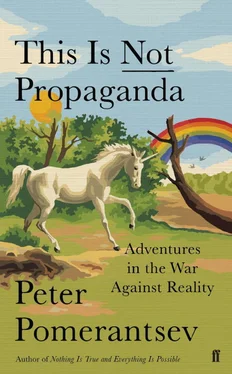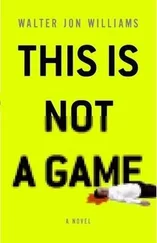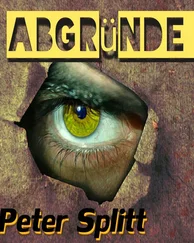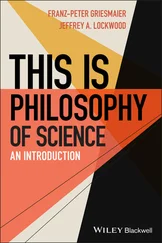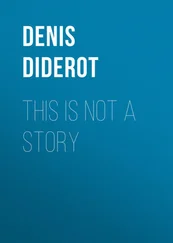After 2000 Srdja’s fame spread. He got requests from opposition groups in Zimbabwe and Belarus to train them. He realised that going round the world schooling protest movements could be a job. Together with another Otpor! founder, Slobo Djinović, he set up CANVAS: the Centre for Applied Non-Violent Actions and Strategies. He trained activists in Georgia, Ukraine and Iran, who would then take part in what became known as the ‘colour revolutions’ (Rose, Orange and Green respectively). Then came training for leaders in Egypt, Tunisia and Syria, who would go on to participate in what became known as the ‘Arab Spring’.
Srdja, along with many political scientists, sees these movements as part of a greater historical process: successive ‘waves of democratisation’, with democracy defined as a mix of multi-party elections, plural media and independent institutions such as the judiciary. The first wave was the overthrow of authoritarian rule in South America, South Asia and South Africa in the late twentieth century, and the end of Soviet power in Eastern Europe – the Velvet Revolution in Czechoslovakia, the fall of the Berlin Wall, the Singing Revolution in the Baltic States, with their unforgettable images of millions pouring peacefully onto the streets in one great sea of anti-Soviet sentiment. The colour revolutions, argues Srdja, were the next wave, the Arab Spring the one after, swelled by the rise of social media.
Srdja sees himself as the connection between the first and later waves. Yugoslavia was both the last aftershock of the fall of the Soviet system and the first of the new ‘democratisations’. For Srdja, the ultimate aim of his work is simple: if you give people more power over how their lives are run, democracy will be the better for it. Democracy’s ultimate defenders are the citizens, aware and trained in how to keep their elected representatives accountable.
Over the years Srdja has become a bogeyman for authoritarian leaders. His manuals are required reading at the Russian, Belarusian and Iranian defence ministries. There are frequent stories about him in their state-controlled news. All this interest has a positive side effect for Srdja: the more the leaderships in Moscow or Tehran admonish him, the more clients he attracts.
Former Otpor! activists who have made good in business cover Srdja’s office costs and salaries for his four staff. Opposition movements pay for him to train their activists. At other times a group like Greenpeace will pay for him to come and run courses there.
A significant proportion of his work comes from partner-ships with organisations connected to what one might term the American ‘democracy assistance complex’, which emerged during the Cold War: US Congress-funded foundations like the National Democratic Institute (NDI), the International Republican Institute (IRI) and Freedom House. Their relationship with Srdja goes all the way back to the final days of the Milošević regime: it was the NDI that provided the polling which encouraged Srdja to unite behind a less urban, liberal leader. Other ‘democracy assistance’ foundations provided B92 with the technology to set up its Internet radio channels and helped train 30,000 election monitors for the 2000 elections, which Milošević tried to fix.
To their enemies these organisations are just a front for American imperialism and meddling. To their friends they are one of the few decent things American foreign policy produces, funding pro-democracy groups in places like the Middle East or Central Asia that fight the dictatorships American diplomacy makes friends with.
Srdja is irked by the suggestion that he trains activists only in countries that coincide with US foreign policy interests. ‘President Mubarak of Egypt, who was overthrown by the Arab Spring, was one of largest recipients of American military and civil aid for decades, and I helped train activists there during his rule. And you know the only place CANVAS is officially blacklisted? United Arab Emirates – America’s close ally. For me there are only two types of society: places where governments are afraid of the people, which we call “democracies”; and places where people are afraid of their autocratic governments. I don’t care which dictator I’m empowering people to be free of.’
But lately a new generation of rulers have reinvented their tactics to undermine protest and nullify dissent. If once upon a time one could speak confidently about history’s waves of democratisation flowing in a single current, now a great storm has broken out and you can’t tell what’s flowing in which direction. [3] ‘Democracy Continues Its Disturbing Retreat’, The Economist, 31 January 2018; https://www.economist.com/graphic-detail/2018/01/31/democracy-continues-its-disturbing-retreat .
*
Srdja’s first principle is to develop an alternative political vision and identity to that of the regime. This used to be straightforward: autocrat versus democrat, closed versus open. In Serbia it had meant joining the ‘international community’ instead of isolation.
But today’s strongmen are not so stiff. Instead of hanging onto one single ideology they have learnt to speak with different tongues. Already in the early Putin years, for example, the Kremlin mixed overtures to Soviet greatness with Western reality shows and Western shopping. When the leadership embraces different identities so slickly, how is the opposition meant to find a space to project theirs?
But one doesn’t need to go far from Srdja’s original stomping grounds to see how things have changed.
In Serbia, where CANVAS hasn’t run any workshops for over a decade, the new president is Milošević’s old information minister, Aleksandar Vučić. He’s begged forgiveness for his ‘past mistakes’. If yesteryear he ran a media machine that saw the West as an implacable enemy surrounding Serbia, today he espouses integration with the EU and NATO. ‘Reforms for all,’ is one of his slogans. [4] Karnitschnig, Matthew, ‘Aleksandar Vučić: Let’s Not Go Back to the ’90s’, POLITICO, 14 April 2016; https://www.politico.eu/article/aleksandar-vucic-interview-serbia-balkans-migration-kosovo-bosnia/ .
Vučić has also swapped a dated form of media control for a more sophisticated one. In 1999 he would call in newspaper editors and threaten them if they didn’t toe the line. Today there are dozens of media outlets, including many foreign ones. However, if a newspaper or television station wants to win government advertising or receive government funding, or if its owners want to win government contracts, then it ought to toe the government line. [5] ‘Serbian Media Coalition Letter to the International Community’, 22 October 2018; http://safejournalists.net/serbian-media-coalition-alerts-international-community/ . Trevisan, Matteo, ‘How Media Freedom in Serbia Is Under Attack’, EUobserver, 2 November 2018; https://euobserver.com/opinion/143268 . Reporters Without Borders, ‘Who Owns the Media in Serbia?’, 21 June 2017; https://rsf.org/en/news/who-owns-media-serbia .
It’s similar to media in Erdoğan’s Turkey or Orbán’s Hungary: market-orientated in form, authoritarian in content. One of the premises of ‘democratisation’ was that a plural media based on free-market rules would help ensure democracy. It was always a tenuous idea. Tycoons with special interests often own the media in ‘democracies’, but now they can be utterly hollowed out from the inside.
And the Vučić the domestic media portray is somewhat different to the one who meets Western delegations. In the local tabloids he is still a good old Serbian nationalist, tussling with neighbours, lamenting the loss of territory after the war, while simultaneously promising to bring stability to the Balkans during summits in Brussels. [6] Karnitschnig, Matthew, ‘Serbia’s Latest Would-Be Savior Is a Modernizer, a Strongman – or Both’, POLITICO, 14 April 2016, updated 21 April 2016; https://www.politico.eu/article/aleksandar-vucic-serbias-latest-savior-is-a-modernizer-or-strongman-or-both/ .
Читать дальше
